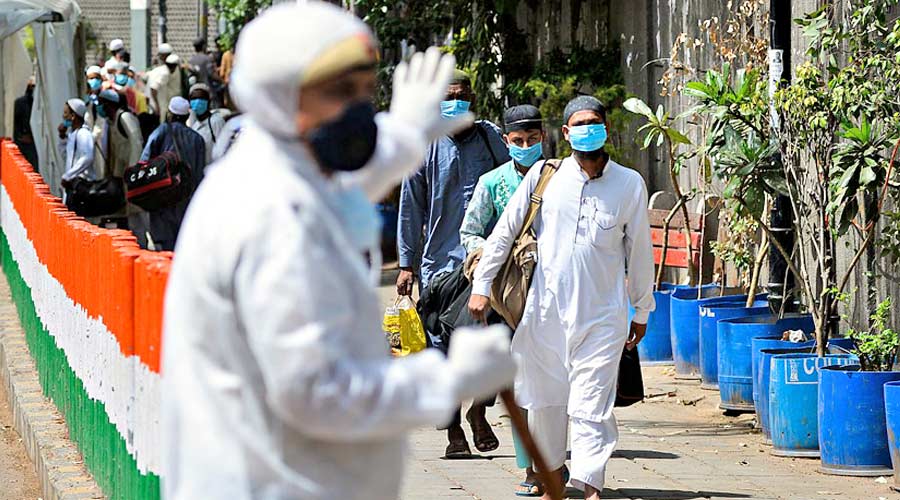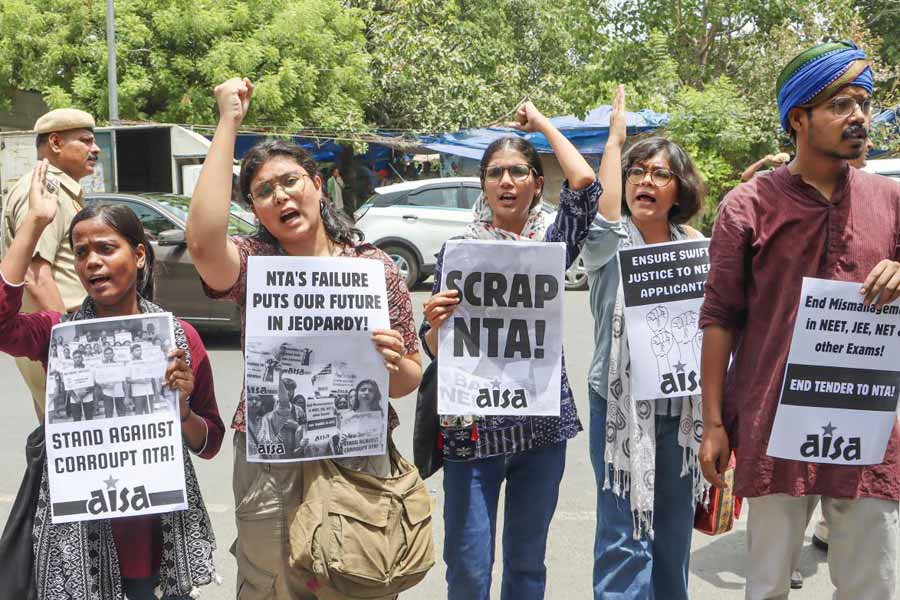India's present Covid scenario does not warrant restricting international flights or imposing a lockdown, but there is a need for strengthened surveillance and vigilance in view of the rise in cases in some countries, experts have said.
They also said that a fresh outbreak of severe Covid cases and hospitalisation is unlikely as people in India have the advantage of 'hybrid immunity' i.e. natural immunity due to infection reinforced by vaccination.
"Overall, there is no increase in Covid caseload and India currently is in a comfortable situation. Under present circumstances, there is no need to restrict international flights or impose a lockdown," Dr Randeep Guleria, a former AIIMS director, told PTI on Friday.
Past experiences show that banning flights is not effective in halting the transmission of infection, he said. "Moreover, data suggests that the Omicron sub-variant BF.7, which is driving the surge in China, has already been found in our country." Asked whether a lockdown could be needed in the coming days, Dr Guleria said, "A fresh outbreak of severe Covid cases and hospitalisation is unlikely as the Indian population already has hybrid immunity because of a very good vaccination coverage and natural infection." "Considering the current situation and a good degree of hybrid immunity in the population, there does not seem to be a need for a lockdown," Dr Guleria said.
Dr Neeraj Gupta, a professor in the Department of Pulmonary, critical care and sleep medicine at Safdarjung Hospital, said India needs to exercise caution given the surge of COVID-19 cases in China and some other countries but a "lockdown-like situation is not envisaged in near future given the current India scenario".
"Covid-appropriate behaviour needs to be reinforced since complacency has crept in because of very low number of Covid positive cases. We cannot be slack given the global scenario since the pandemic is still not over," he said.
He added 'hybrid immunity' makes a person more secure against future infections with morbidity/mortality benefits.
"India has the advantage due to citizens taking voluntary actions like prevention, early diagnosis and good vaccination strategy," he told PTI.
He also opined China comparatively is more vulnerable right now possibly because of low natural immunity, "poor vaccination strategy where young and healthy people were prioritised rather than older and vulnerable population, and lower vaccine efficiency".
Their population may be less immune and more vulnerable also due to the country's strict lockdown mechanism, he said.
Dr Chandrakant Lahariya, a physician and an epidemiologist, said the experience of last three years has shown that while travel restrictions delayed the transmission of virus, it has no role anymore. In fact, it cannot stop the transmission and moreover, by the time a new variant is detected, it already reaches to different parts of the world, he said.
"We had seen this a year ago with the Omicron variant. Clearly, travel bans have no role anymore. And secondly India has over 250 sub-variants of Omicron already. And, therefore, the most rational approach is to random sampling -- with no mandates and minimal inconvenience to passengers -- for incoming international passengers. The purpose would be to keep track of emerging covid sub-variants," he said.
The current Covid situation in India is under control and there are no reasons to panic, said Dr N K Arora, the chairperson of National Technical Advisory Group on Immunization (NTAGI).
He, however, added people must follow Covid-appropriate behaviour and those eligible should take the precaution dose.
Amid a spurt in cases in Japan, United States of America, South Korea, Brazil, France and China, India has stepped surveillance and genome sequencing of covid positive samples. Chinese cities are currently hit by the highly transmissible Omicron strain mostly BF.7 which is the main variant spreading in Beijing and is contributing to a wider surge of infections in that country.
BF.7 is a sub-lineage of the Omicron variant BA.5 and has the strongest infection ability since it is highly transmissible. It has a shorter incubation period, and has a higher capacity to cause reinfection or infect even those vaccinated.
Also, 97 per cent of the India's eligible population have been administered the first dose while 90 per cent have taken the second as well.
But, only 27 per cent of the eligible population has taken the precaution dose.
Except for the headline, this story has not been edited by The Telegraph Online staff and has been published from a syndicated feed.











